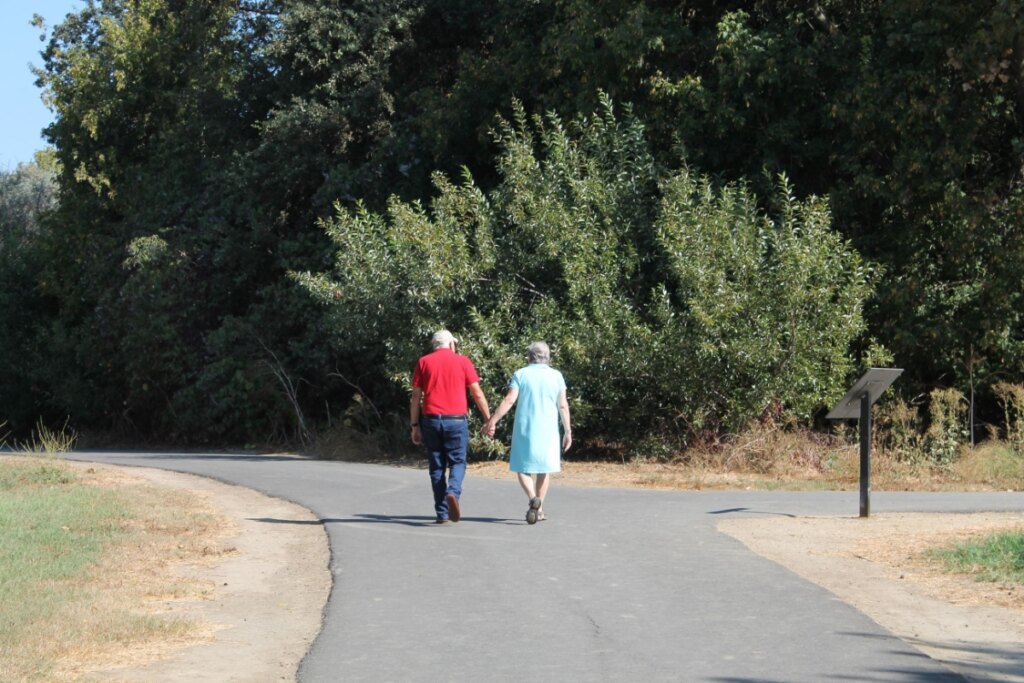-
Can we do anything about Wandering?
For caregivers of individuals with dementia or cognitive impairments, wandering can be a significant concern. Wandering is defined as moving around without a specific destination or purpose, and it can put individuals at risk of injury or getting lost. However, there are several strategies that caregivers can use to prevent wandering and ensure the safety of their loved ones. First and foremost, it is essential to create a safe and secure living environment. This may involve installing locks on doors and windows or utilizing a security system. Removing any potential hazards, such as sharp objects or tripping hazards, from the home is also essential. Additionally, caregivers should consider utilizing…
-
The Dr. said “Dementia”, Now What?
Your doctor said those words and left you reeling. Perhaps he told you there is no cure, and it's terminal. Your mind is racing so much that it's hard to formulate all the questions. What now? Is there anything that will slow it down? Are there medications that will help with symptoms? What am I supposed to do? It's not contagious, right? (No.) And many more questions you haven't even considered yet. It's upsetting to be left with what seems to be so many missing pieces to the puzzle. I get it. I've been with family and friends when they received the diagnosis. It's never fun, and it's always upsetting.…
-
Myths About Parkinson’s
My Dad had Parkinson's disease. I had never been around anyone who had Parkinson's before dad. I knew next to nothing about it except the famous Parkinson's shake. As a result, I didn't handle everything perfectly. (I probably wouldn't have done it perfectly even with all the information in the world!) But, there are things I could have done better. All we can do is keep learning and applying our new knowledge for the benefit of others. To that end, I felt the need to write some Myth Busters about Parkinson's disease specifically. First, here's an old pic of my sweet Mom and Dad before the diagnosis. Myth #1 Since…
-
10 Early Symptoms of Parkinson’s Disease
Below are the widely accepted early warning signs of Parkinson's Disease. Having a symptom doesn't mean you have the disease; however, if you notice several symptoms, it might be worth consulting a neurologist to be sure. 1) Loss of sense of smell. This is one of the oddest, least-known, and often earliest signs of Parkinson's disease, but it almost always goes unrecognized until later. Patients say they were at a party, and everyone was remarking on how strong a woman's perfume was, and they couldn't smell it. 2) Trouble sleeping. Neurologists stay alert for a sleep condition known as rapid-eye-movement behavior disorder (RBD), in which people essentially act out their…
-
Set Hammy Free!
Consider my hamster, Hammy, creative name right? Hammy wants out of his cage more than anything. He looks at me begging with his big, brown, fur-trimmed eyes to puhleeeease let him out. He even makes little whining noises to sound pitiful, hoping to play on my sympathies so he can be released into the wilds of my living room. Hammy thinks if he can get out of his prison, be set free and allowed to roam wherever he wants, he'd be the happiest hamster ever. He doesn't understand why I won't let him out no matter how much he begs. He is oblivious to the danger that would most certainly beset him in…



